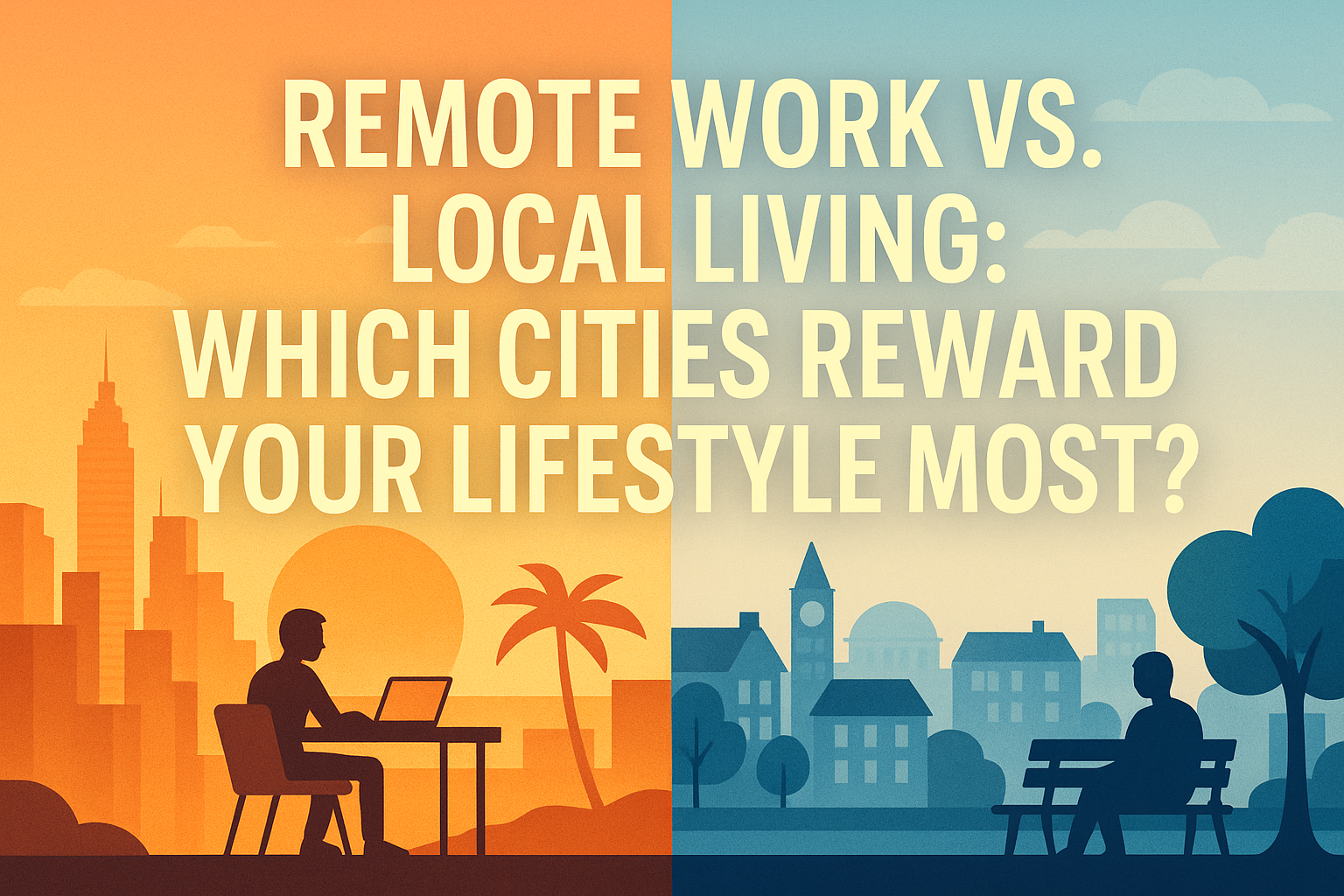Remote Work vs. Local Living: Which Cities Reward Your Lifestyle Most?
Remote work has changed the game. For millions, the question is no longer “Where is the office?” but rather, “Where does life feel best?”
But as cities adjust to this shift, two types of locations are emerging:
- Cities that reward remote work with tax perks, flexibility, and community
- Cities that still offer strong local job markets, employer benefits, and in-person opportunity
This guide helps you compare the two—and find the best fit for your lifestyle, career, and bank balance.
1. What Remote-Optimized Cities Offer
Remote-first cities are built for digital workers, freelancers, and remote employees. Key features include:
- Long-stay digital nomad or freelancer visas
- Territorial or low/no income tax
- Affordable housing
- Strong internet + coworking infrastructure
- A visible nomad or expat community
Top Remote Work Hubs in 2025:
| City | Visa Type | Tax Regime | Avg. Rent (1BR) |
|---|---|---|---|
| Tbilisi | 365-day visa-free | 1% SME | $450 |
| Bali | 5-year remote visa | Tax-free offshore | $800 |
| Mexico City | Tourist (180-day) | Flat-rate freelance | $650 |
| Lisbon | Remote visa | NHR (low tax) | $1,150 |
2. What Local Job-Driven Cities Offer
Local-economy cities are still job-rich hubs. They offer:
- Strong employer networks
- Social benefits (e.g. healthcare, pension)
- Career acceleration opportunities
- Mentorship, networking, and industry events
Top Local Market Cities in 2025:
| City | Avg. Net Salary | Strong Sectors | Rent (1BR) |
|---|---|---|---|
| Berlin | $3,200 | Tech, media, design | $1,350 |
| Toronto | $3,400 | Finance, healthcare | $1,700 |
| Sydney | $4,000 | Education, consulting | $2,100 |
| London | $4,700 | Fintech, creative | $2,600 |
3. Lifestyle Tradeoffs to Consider
| Factor | Remote-First City | Local Job Market City |
|---|---|---|
| Tax Savings | Often high (0–15%) | Moderate to high (30–45%) |
| Community | Nomad, expat-focused | Local, career-network focused |
| Visa Stress | Lower (some visa-free) | More documentation-heavy |
| Job Security | You’re the employer | Employer-backed benefits |
| Career Growth | Self-driven or remote-only | In-person opportunities |
| Rent Affordability | Higher value per $ | Expensive in core districts |
4. Which Is Better for You?
Go remote-first if you:
- Want to optimize for cost savings, freedom, and flexibility
- Are self-employed, freelance, or work async
- Prefer low bureaucracy, warmer climates, and lower taxes
Go local-market if you:
- Work in regulated or in-person fields (e.g. law, medicine, public sector)
- Want networking and structured mentorship
- Need access to social benefits or relocation support
5. Hybrid Strategy: The Smart Middle Ground
You don’t have to choose just one.
Many digital workers now adopt a hybrid relocation plan:
- Spend 6–12 months in a remote-first city to reduce costs
- Build runway and experience
- Move to a local market hub for career growth or family planning
Final Thought
Remote work isn’t about working from anywhere. It’s about living better while you work.
Whether you pick a beachside visa haven or a bustling financial hub, make sure your city rewards your lifestyle—not just your labor.
Compare both types now with our city lifestyle filter tool.
